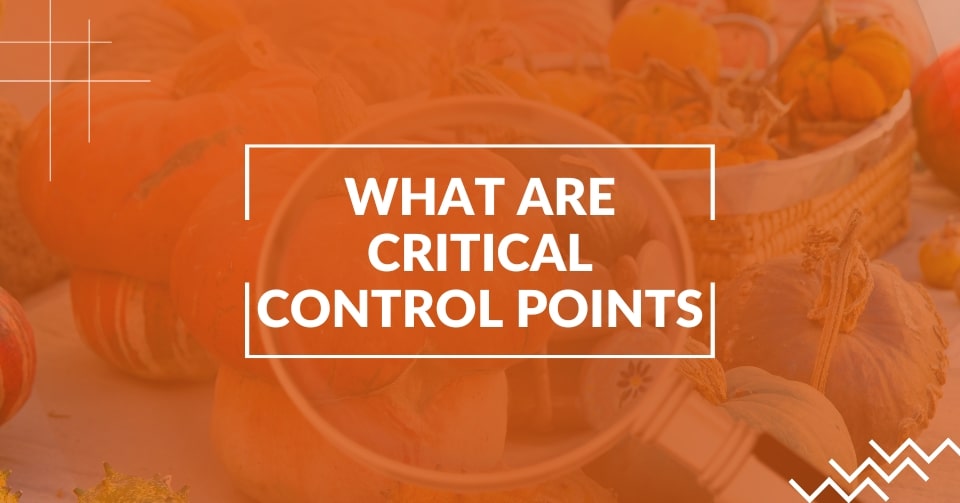As a food manufacturer, you know that food safety is a top priority. The consequences of not following food safety protocols can be severe, including product recalls, lawsuits, damage to your brand’s reputation and harm to the end consumer. That’s why it’s a great idea to have your business become GFSI certified.
One of the best ways to ensure that your products meet high food safety standards is to obtain a certification from MyGFSI.
However, having your product GFSI certified may not be necessary for all buyers. In this blog post, we’ll discuss which buyers might require you to become GFSI certified.
Is SQF Certification the Same as GFSI?
SQF (Safe Quality Food) Certification is one of the Global Food Safety Initiative’s benchmarked standards that a business may use to achieve GFSI certification. Another example is BRC (British Retail Consortium) certification, which is more popular in the United Kingdom.
Which Buyers Require GFSI Certification?
1. Large Retailers and Distributors
If you sell food products to large retailers such as Walmart, Target, Costco, or Amazon, you’ll likely need to become GFSI certified. These companies require their suppliers to meet specific food safety standards to ensure that their customers are receiving safe and high-quality products.
Being GFSI certified is an important step to becoming a stand-out brand because GFSI certification is perhaps the most recognized and trusted food safety certification worldwide and satisfies the requirements of most large retailers and distributors.
Because GFSI uses benchmarked standards of SQF and BRC and other exhaustive food safety certifications, if you achieve a GFS certification there will be no need to pursue lesser food safety certifications for your food manufacturing business.
2. Food Service Providers
If you supply food products to food service providers such as restaurants, catering companies, or institutional dining facilities, you may need to be GFSI certified. Food service providers have a responsibility to ensure that the food they serve is safe, and they may require you to become GFSI certified as evidence that your products meet their food safety standards.
3. International Buyers
If you export your food products to other countries, you may need GFSI certification. Many countries have their own food safety regulations, and becoming GFSI certified can help you meet those requirements.
Additionally, export markets may require GFSI certification as proof that your products meet international food safety standards.
4. Private Label Food Products
If you manufacture private label food products for brand owners, you may need GFSI certification. Brand owners have a reputation to protect and want to ensure that the products their name is associated with are safe and of high quality. GFSI certification can reassure them that your products meet their standards.
Want to Sell to Costco, Walmart, or Amazon?
GFSI certification is the key. Use FoodReady to simplify the process and open new doors for your food brand.
So How Does GFSI Certification Benefit You?
Even if specific buyers don’t require you to become GFSI certified, certification of your food safety management system (FSMS) can provide numerous benefits. You’ll have a documented system for ensuring food safety, which can help identify potential hazards and reduce the risk of contamination.
Additionally, certifying your FSMS can help you differentiate your business from competitors and provide a competitive advantage and get your product into bigger and better retailers.
Is GFSI Always Required for Manufacturers?
While not every buyer requires a level of food safety as high as GFSI certification, it is becoming increasingly important in today’s global food industry. As a QA manager or food manufacturer, it is essential to understand which buyers require GFSI certification and the benefits of certification for your business. By obtaining GFSI certification, you can meet specific food safety requirements and demonstrate your commitment to food safety to your customers, suppliers, and stakeholders.
FoodReady food safety and consulting can help your business prepare for SQF, BRC, or any other 3rd-party audit to put you on the pathway to GFSI certification. We provide a GFSI audit certification program for preparing and passing the GFSI audit.
Schedule your free consultation and demo and discover how FoodReady can help your business.
FAQs
If you have systems already in place like HACCP and GMP, obtaining GFSI certification will take less time than if you are starting without a food safety system. Also newer, more modern facilities and equipment will usually make it easier to obtain certification because sanitation is easier and more effective. Because of these varying factors, readiness for a GFSI benchmarked audit can take from 6 months to a year.
Yes, HACCP will be at the center of your GFSI food safety system.
At FoodReady our GFSI consultants have been through GFSI audits and know what the requirements are for the different benchmarked standards and know what auditors are looking for when they perform audits. Hiring a consultant can save you and time and money in the long run, because you will pass the audit in less time, which enables you to sell your product to more buyers.







